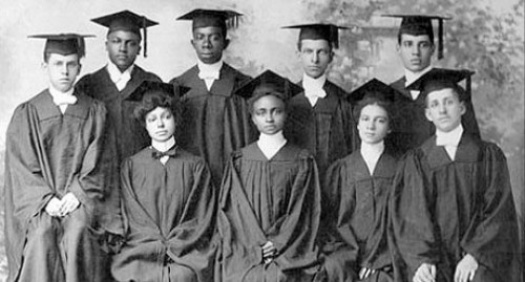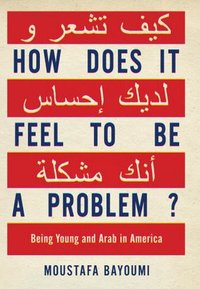
I recently posted on the peculiar strategy employed by defenders of a Brooklyn College committee’s selecting Moustafa Bayoumi’s book, How Does It Feel to Be a Problem? Being Young and Arab in America, as mandatory reading for all first-year and transfer students at the college. As I noted at the time, Bayoumi and his defenders […]
Read More
Should all-black colleges exist in 2010? No, some say. After all, it’s been almost fifty years since segregation was outlawed in America. And most Historically Black Colleges and Universities (HBCUs) are of also-ran status, doing their best, but hardly the bastions of excellence that so many were in the old days. Graduation rates are low […]
Read More
Congratulations to FIRE for inducing the University of Virginia to drop four policies that restricted the speech of students and faculty. One policy had prohibited Internet messages that are “inappropriate” or “vilify” others. The campus women’s center backed down from two unusually preposterous policies that listed “teasing,” “jokes of a sexual nature” and “innuendo” as […]
Read More
Radical Math held its third annual conference in New York last weekend. Four hundred high school math teachers and education professors attended the conference on “Creating Balance in an Unjust World: Math Education and Social Justice.” At thirty-two workshops on Long Island University’s Brooklyn campus and in half a dozen city public schools, math teachers […]
Read More
The Arizona Civil Rights Amendment, also known as Proposition 107 or HCR 2019, will be on the November, 2, 2010, ballot. Virtually identical to similar measures launched by Ward Connerly and passed by substantial margins in California, Washington, Michigan, and Nebraska, Prop. 107 would amend the Arizona constitution to prohibit the state from “discriminat[ing] against […]
Read More
How Does It Feel to Be a Problem? Being Young and Arab in America—the controversial book assigned for freshman reading at Brooklyn College—is, in my opinion, an important but seriously flawed work, and one that should be read, but not as a sole required text for incoming English students. In the book Brooklyn College English […]
Read More
A couple of weeks ago Peter Wood, president of the National Association of Scholars, wrote a serious, humorous, penetrating assessment of the rise of “sustainability” as the new ideology de riguer on college campuses. (The article is also available here, but read it on the Chronicle site if you can — the comments there are […]
Read More
I hesitate to criticize sociology or sociologists. After all I am now at nearly a lifetime in the discipline, which I have taught for more than thirty years. But I would be dishonest if I did not acknowledge that throughout that time I have been a dissident in the field, a role, protected by tenure, […]
Read More
The news circulating among humanities professors across the country is the decision by SUNY-Albany to close programs in Classics, French, Italian, Russian, and Theatre. (Judaic Studies, too, has been virtually eliminated and journalism will be cut in half.) The general dismay is palpable, but faculty members should prepare for more of the same in the […]
Read More
On paper, accreditation is an amazing system. Among other things, it simultaneously advises colleges on how to improve, enforces a minimum level of quality, provides needed information to policy makers, and protects colleges from government intrusion. It does all this with only a few hundred employees, and a few thousand volunteers. Indeed if accreditation actually […]
Read More
Charlotte Allen’s September 23 post here, College for the Intellectually Disabled, has outraged some Down Syndrome activists, one of whom sent us the letter below. The gist of the letter is that the intellectually disabled deserve to be in college, though by definition, they will be unable to do the work. Kindness and a feel-good […]
Read More
About this time of year, faculty members seek relief from their stressful campus existence by flocking to such fun-filled destinations as Orlando and Las Vegas for their annual professional conferences. However, these workaholics never are far removed from their sociopolitical agendas, which are available for the world to see in workshop descriptions laid out in […]
Read More
George Philip deserves a prominent place in any 2010 academic hall of shame. The SUNY Albany president recently terminated the university’s French, Russian, Italian, Classics, and Theater departments, citing financial concerns. That Albany purports to be a quality university (and is, in fact, one of SUNY’s better branches) makes Philip’s move all the more unjustifiable. […]
Read More
One of the saddest effects of the plague of political correctness that infects most selective campuses is the rampant dissatisfaction and unhappiness it produces. Those who care enormously about the purity of anything are often frustrated by even rumors of deviation from perfection. Just as hi-fi buffs searching for the absolute sound tend to listen […]
Read More
In the October 3rd issue of the Chronicle of Higher Education is a broad comparison of diversity and sustainability “ideologies.” In it, Peter Wood offers several general remarks about the terms (or notions, attitudes, commitments . . . what is the right word for these hazy but potent “-ities” that bear so many psycho-political undertones […]
Read More
————————————- Read Part 1 here. ————————————- In examining the gulf between sticker price and real cost, let’s consider the top 10 national universities as defined by U.S. News & World Report in its most recent rankings. Using U. S. Department of Education data, I compiled the average net prices that students from different family income […]
Read More
By Peter Sacks Jeffrey Selingo, the editor of The Chronicle of Higher Education, should have known better. He told ABC News: “students that maybe 10 or 15 years ago came from families who can easily afford to pay for their son’s or daughter’s education are now being forced to apply for financial aid.” That sounds […]
Read More
What does it mean to be safe on campus? The word is so often invoked—creating “safe zones” or maintaining a “safe environment”—that it has arguably become meaningless. Perhaps more accurately, it has taken on a second meaning, specific to the university. Whereas the real-world definition refers essentially to one’s physical well-being, in the campus context […]
Read More
Video of our Capitalism on Campus event last week is now available here on on the Manhattan Institute site. The first two videos feature panels on the state of instruction in capitalism and political economy, showcasing a diverse range of academics from Jeffrey A. Miron, professor of economics and director of undergraduate studies at Harvard, […]
Read More
On Sept. 23 Iranian President Mahmoud Ahmadinejad, on a visit to U.N. headquarters in New York, told the U.N.’s General Assembly that “some segments within the U.S. government orchestrated the attack” that killed 3,000 Americans on Sept. 11, 2001. Within hours of Ahmadinejad’s speech, which prompted walkouts by U.N diplomats from the United States, Britain, […]
Read More
This paper was prepared for yesterday’s conference on “Capitalism on Campus: What Are Students Learning? What Should They Know?” The one-day event in New York City was sponsored by the Manhattan Institute’s Center for the American University. Charlotte Allen, who writes frequently (and exceptionally well) for Minding the Campus, is preparing a report for us […]
Read More
A depressing, if somehow unsurprising given the current state of higher education, read from the Boston Globe. It seems that only 23 percent of spring 2010 courses at Harvard offer final exams. At least one reason is embarrassing—the university has cut back on funding exam proctors, meaning that professors or their teaching assistants now need […]
Read More
Steven Pinker, noted Harvard psychologist and linguist delivered an address to mark Boston’s Ford Hall Forum’s presentation of their Louis P. and Evelyn Smith First Amendment Award to the Foundation for Individual Rights in Education. Pinker’s speech draws valuably upon two of Pinker’s hats – as psychologist and FIRE adviser in offering a sharp analysis […]
Read More
Mark C. Taylor’s Crisis on Campus: A Bold Plan for Reforming Our Colleges and Universities (Knopf) is neither as bold nor as innovative as he would like us to believe. What purports “to begin a national conversation about transforming our institutions of higher learning” merely continues the postmodern assault on higher learning that began in […]
Read More